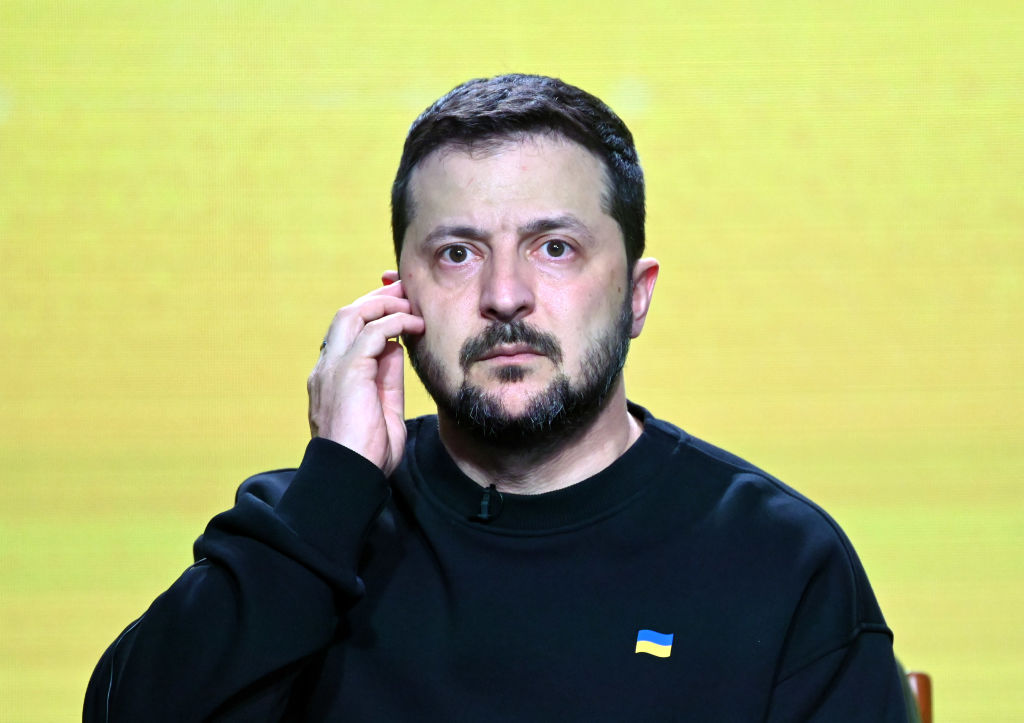On Sunday, Ukrainian President Volodymyr Zelensky announced that 43,000 Ukrainian soldiers have died since the start of Russia’s full-scale invasion. He further reported 370,000 cases of battlefield medical assistance for the wounded, though he stressed that “approximately half of the soldiers wounded in action are later returning to the battlefield”, and that the data includes “light or repeat injuries”.
Such an admission may at first seem surprising. The Ukrainian President has been notably reluctant throughout the war to go into specifics about the number of casualties. He has not put a number on Ukrainian war deaths since February, when he claimed 31,000 troops had been killed, and even then refused to say how many had been injured lest it assist Moscow’s military planning. Zelensky proved similarly averse to providing details in an interview with Kyodo News at the start of December. Regarding reports in the Wall Street Journal from September that a confidential Ukrainian estimate this year had put the figure at 80,000 dead, he replied simply: “No, less. Much less”.
So why the sudden need to put numbers out into the public domain? The answer lies with US President-elect Donald Trump, who posted on Sunday that Ukraine had “ridiculously lost 400,000 soldiers, and many more civilians”. Never a man for details, Trump did not specify how many were dead or wounded. For his part, Zelensky took to Telegram to clarify.
The truth is that 43,000 is a very low number, with other credible organisations offering much higher calculations of Ukrainian losses. On 4 December, Ukrainian journalist Yuri Butusov claimed that Ukrainian General Staff data indicated 70,000 dead and another 35,000 missing. The UALosses website, which tracks the names and ages of the deceased, says that at least 66,622 troops have died. At the end of November, the Economist suggested, based on leaked and published reports by intelligence agencies, defence officials, researchers and open-source intelligence, that at least 60,000-100,000 Ukrainian soldiers have died while an additional 400,000 are too wounded to fight. In a particularly sobering statement, the Economist noted that, assuming six to eight Ukrainian soldiers have been severely wounded for every one killed, one in 20 men of fighting age (18-49) is either dead or too badly injured for war.
Casualty figures are another front in the war. Both sides have been reluctant to share their own, yet provided overblown estimates for enemy losses. The reasons for this are clear: the need to present a view of battlefield success, the danger of demoralising one’s own army and society, and the risk of offering the other side insights or propaganda opportunities. As such, being forced into making a public admission of losses, even a suspiciously low one, would be problematic for Ukraine’s President at any time.
However, it is particularly difficult in the current political climate. It may exacerbate the existing desertion crisis. What’s more, US Secretary of State Antony Blinken recently urged Kyiv to drop the conscription age from 25 to 18, an idea met with horror among Ukrainians. As such, Zelensky’s open discussion of losses will likely exacerbate an already emotional public debate about sending teenagers to their deaths. While the Ukrainian leader has said he has no plans to lower the mobilisation age, he may be even less able to do it now for fear of public backlash, thereby depriving Kyiv of vital manpower needed to repel Russian advances in Donetsk.
That is not the only heated public debate Zelensky will be facing soon. During meetings with Trump at the weekend, he reportedly discussed Ukrainian conditions for ending the war. Zelensky is therefore now not far from the unwieldy task of guiding Ukrainian society through the sensitive business of negotiations and concessions, building a domestic consensus for a deal.
Vladimir Putin faces no such PR exercise. It will be challenging for Zelensky to convince Ukrainians of the necessity of territorial concessions anyway, even before a fresh bout of public anger and grief at the latest statistics. No matter what the figure truly is, Ukrainians facing the loss of their land will ask: was this what all those men died for?











Join the discussion
Join like minded readers that support our journalism by becoming a paid subscriber
To join the discussion in the comments, become a paid subscriber.
Join like minded readers that support our journalism, read unlimited articles and enjoy other subscriber-only benefits.
Subscribe